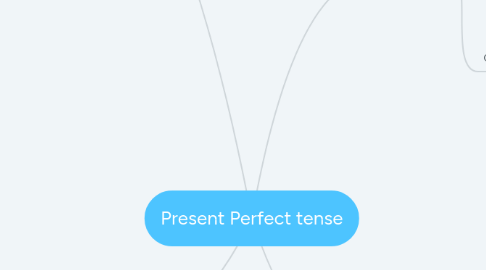
1. Use
1.1. 1. Finished Actions —-Past Event & Present Result
1.1.1. Examples: 1. She has lost her wallet ( She can’t find it ) 2. We can’t reach Paul by phone. Have you seen him? 3.Tom isn’t at school. I think he has gone to the theater. 4. My sister has broken her arm. Her arm is still broken.
1.2. 2. Recent Completed Actions
1.2.1. “just” or “recently”
1.2.2. Examples: 1. I have just finished my project. 2. My mother has just cleaned the house. 3. We have recently eaten dinner.
1.3. 3. Unfinished Actions / Duration from Past until Now
1.3.1. ‘since’ or ‘for’
1.3.2. Examples: 1. The student has studied maths for three months. 2. I have lived in Paris for five years. 3. My son has been sick since Monday. 4. He has worked in Berlin since he graduated from the university.
1.4. 4. Repeated or Multiple Actions at Different Times
1.4.1. Examples: 1. We have watched that movie three times. 2. I have seen David several times.
1.5. 5. Life Experiences
1.5.1. Examples: 1. I have been to England in my life. 2. Have you ever eaten Sushi before? 3. We have never tried to invent something new.
1.6. 6. Accomplishments
1.6.1. Examples: 1. My father has spoken five languages. 2. Scientists have found a new way to get cancer cells to self-destruct. 3. Man has walked on the Moon.
1.7. 7. Changes Over Time
1.7.1. Examples: 1. Our english has improved a lot when we moved to England. 2. Her behavior and attitudes have changed a lot since you last saw her. 3. I have become more interested in medical issues.
2. Forms
2.1. Positive form
2.1.1. Subject + have/has + main verb (past participle form)
2.1.1.1. I/you/we they + have + V3
2.1.1.2. he/she/it + has + V3
2.1.2. Ex: I have tried susi before
2.2. Negative form
2.2.1. Subject + have/has + not + main verb (past participle form)
2.2.2. Ex: I have not tried susi before
2.3. Question form
2.3.1. Have/has + subject + main verb (past participle form)
2.3.1.1. Anwser: Yes, subject + have/has No,subject + have/has + not
2.3.2. Ex: Have you tried susi before?
3. Past participle
3.1. Regular past participle
3.1.1. V+ ed
3.2. Irregular past participle
4. adverbs of time
4.1. 1. Since
4.1.1. Used with a point ( previous point ) in time in the past
4.1.2. Examples: Since last week / month / year / summer, etc. Since one o’clock / two o’clock / six o’clock, etc. Since Sunday, Monday, Friday, etc. Since April, June, January, etc. Since 1950, 1999, 2017, etc Since they moved / we talked to him, etc.
4.2. 2. For
4.2.1. Used with a period of time in the past, present or future.
4.2.2. Examples: For one minute / ten minutes, etc. For two hours / five hours, etc. For a day, four days, six days, etc. For three weeks, seven weeks, etc. For two months, three months, etc. For five years, ten years, etc. For hours, more than a week, ages, a couple of months, etc.
4.3. 3. Already
4.3.1. Used to emphasise that something was completed before something else happened.
4.3.2. Examples: She has already come. The plane has already landed. I have already done it. Have you already written to John?
4.4. 4. Yet
4.4.1. Used to refer to a time which starts in the past and continues up to the present
4.4.2. Examples: It hasn’t stopped snowing yet. They haven’t opened it yet. Have they arrived yet? Has she driven her new car yet?
4.5. 5. Ever
4.5.1. Used to refer to at any time
4.5.2. Examples: Have you ever met her? Have you ever cooked cheesecake? Have you ever heard this sound?
4.6. 6. Never
4.6.1. Used to refer to not at any time
4.6.2. Examples: I have never been to America. We have never heard anything so stupid. She has never flown in a plane before.
4.7. 7. Just
4.7.1. Used to refer to a short time before the moment of speaking
4.7.2. Examples: We have just decided to sell our car. The plane has just arrived. Have they just left?
4.8. first time/second time
4.8.1. After It's/this is the first/second time + Present perfect
4.8.2. Examples: This is the first time we've been to Scotland, so it's all new to us
4.9. Today, This week
4.9.1. Use present perfect with this morning, this week, this year
4.9.2. Examples: we've done quite a lot of work today
